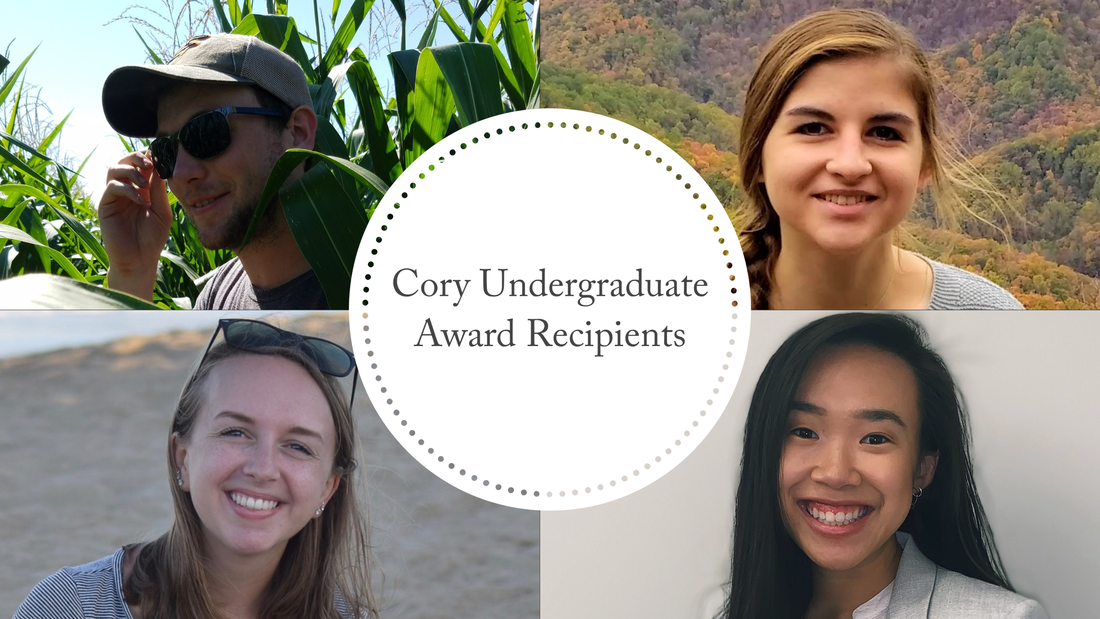Matthew Dimock is a first year transfer undergraduate in Environmental Science & Technology concentrating in Ecosystem Health. While working toward his degree he worked in the Entomology Department for several years as an assistant research technician for Dr. Galen Dively helping to manage summer field research. This past summer, he accepted a position working in Professor Cerruti Hooks Lab where he entered an Undergraduate Fellowship program related to Integrated Pest Management (IPM) research supported by a USDA NIFA Undergraduate Training Grant. This program is a collaboration between seven land grant institutions and the Northeast Region IPM Center aimed at providing undergraduate students experience in research and extension involving IPM. The students in this program are mentored similar to graduate students and are assigned their own research projects. His research project was located at the University of Maryland’s Central Maryland Research and Education Center (CMREC) in Upper Marlboro, MD.
The objective of Dimmock’s project is to determine the impact of intercropping on populations of insect pests and beneficials as well as quantify and compare the efficacy of natural enemies in monoculture and intercropping systems. This study focuses on the Harlequin bug (Murgantia histrionica), an economically significant pest to broccoli and other Brassica plants. The harlequin bug is difficult to manage especially in organically produced crops because it does not have many effective natural enemies and organic products will not successfully suppress high populations. However, on occasion harlequin bug eggs have been found on soybean or edamame plants and in each of those instances, the eggs were parasitized. It was determined that a wasp responsible for parasitizing eggs was the same species of wasp (Telenomus podisi) that frequently parasitized stink bug eggs in soybean. The problem is that this wasp appears to not search for eggs on broccoli plants, as we have never found parasitized eggs on broccoli plants. Because the wasp is known to frequently forage soybean plants for eggs, it was hypothesized that intercropping soybean with broccoli would put the wasp in the proximity of broccoli plants and they would forage and parasitized harlequin bug eggs. Thus, the aim of the study is to compare rates of parasitism of harlequin bug eggs on broccoli plants intercropped with soybean and grown in monoculture. In addition to field management, he also participated as a presenter at the CMREC Annual Twilight Tour field event where he described his research to local growers. Dimmock looks forward to continuing his research during the upcoming growing season while also moving closer to completing his degree. Adelaide Figurskey is a junior undergraduate majoring in Environmental Horticulture. She began working in Dr. Shrewsbury’s lab at the beginning of Summer 2019, rearing and maintaining colonies of the invasive species Halyomorpha halys (brown marmorated stink bug), and researching management of the non-native insect by use of egg parasitoid natural enemies. At the end of the summer, she designed and implemented an independent research experiment, conducted at Raemelton Farm, to study the effect of color on parasitoid wasp attractiveness to sticky cards. The experiment was formulated based on a key observation from her colleague’s field data, where their yellow sticky cards exhibited significantly fewer native parasitoid wasps of the genus Anastatus than the non-native Trissolcus. She is currently in the process of analyzing these cards, identifying the collected parasitoids of H. halys to genus. Figurskey says, “I greatly value my employment in the UMD Entomology Department because it has broadened my understanding of entomological research, as well as the role of natural enemies in managing invasive pests. I would like to thank my supervisor, Dr. Paula Shrewsbury for her mentorship, as well as Cassondra Herman, Madeline Potter, and Dr. Rebeccah Waterworth for their much appreciated support.” Megan Geesin is a senior ecology and evolutionary biology major minoring in Spanish and paleobiology. She joined the Lamp lab in the winter of 2019 and has been helping with various research projects throughout the school year and summer and working on her own independent project. She is currently studying substrate preference in Coenagrionidae damselfly larvae. To study this, she has designed and executed a field and lab experiment and plans to continue this research during her last semester. Working in the Lamp lab has given her invaluable experience working with researchers and conducting field and lab experiments. She plans on attending graduate school and is excited to apply the knowledge she has gained from the Lamp lab in her future. Maggie Tan is a fourth-year honors student majoring in Environmental Science and Policy and minoring in Geochemistry. She is involved with the Biogeochemistry lab and Environmental Engineering lab on campus, working on water quality related research. She also volunteers as a mentor for America Reads, helping first graders in under-resourced schools with their literacy skills. In her free time, she enjoys going on hikes, playing volleyball, and watching documentaries. During her sophomore and junior years, she served as a research assistant for multiple graduate students in the Entomology Department on their master’s theses. Now, as a senior, she is currently working on her own independent honors thesis on the efficacy of regenerative stream conveyance designs, a new restoration approach. Through this project, she has installed her own field instruments and executed chemical analyses on the water samples she has collected. Comments are closed.
|
Categories
All
Archives
June 2024
|
Department of Entomology
University of Maryland
4112 Plant Sciences Building
College Park, MD 20742-4454
USA
Telephone: 301.405.3911
Fax: 301.314.9290
University of Maryland
4112 Plant Sciences Building
College Park, MD 20742-4454
USA
Telephone: 301.405.3911
Fax: 301.314.9290


 RSS Feed
RSS Feed




